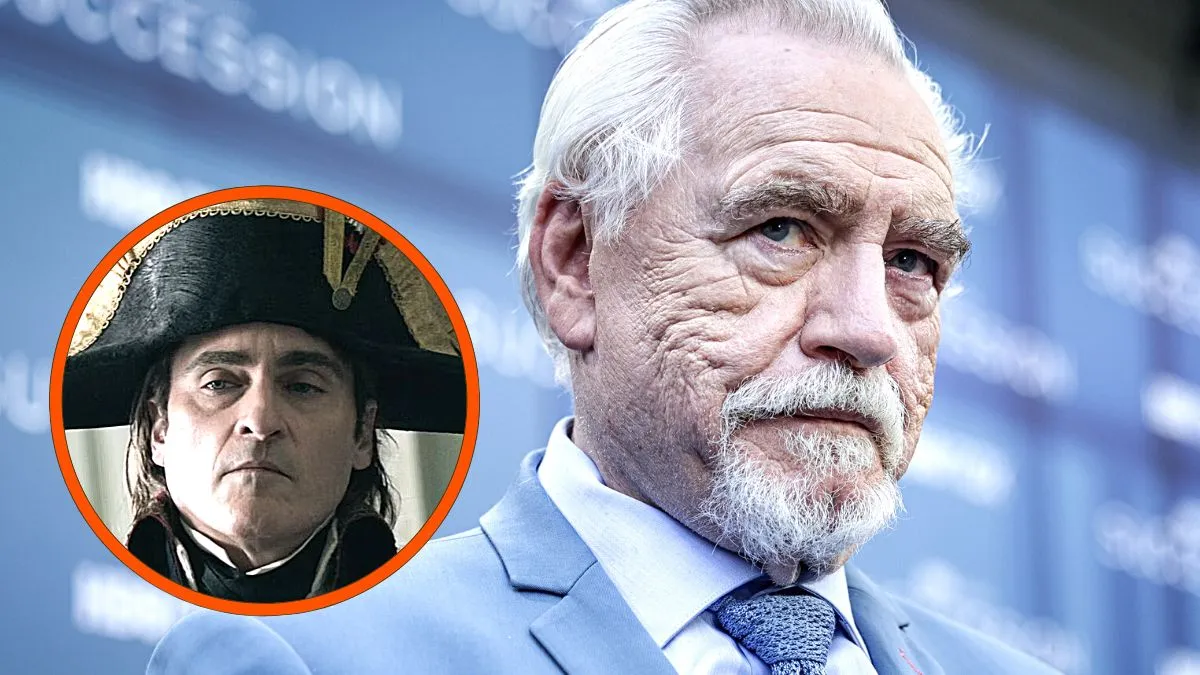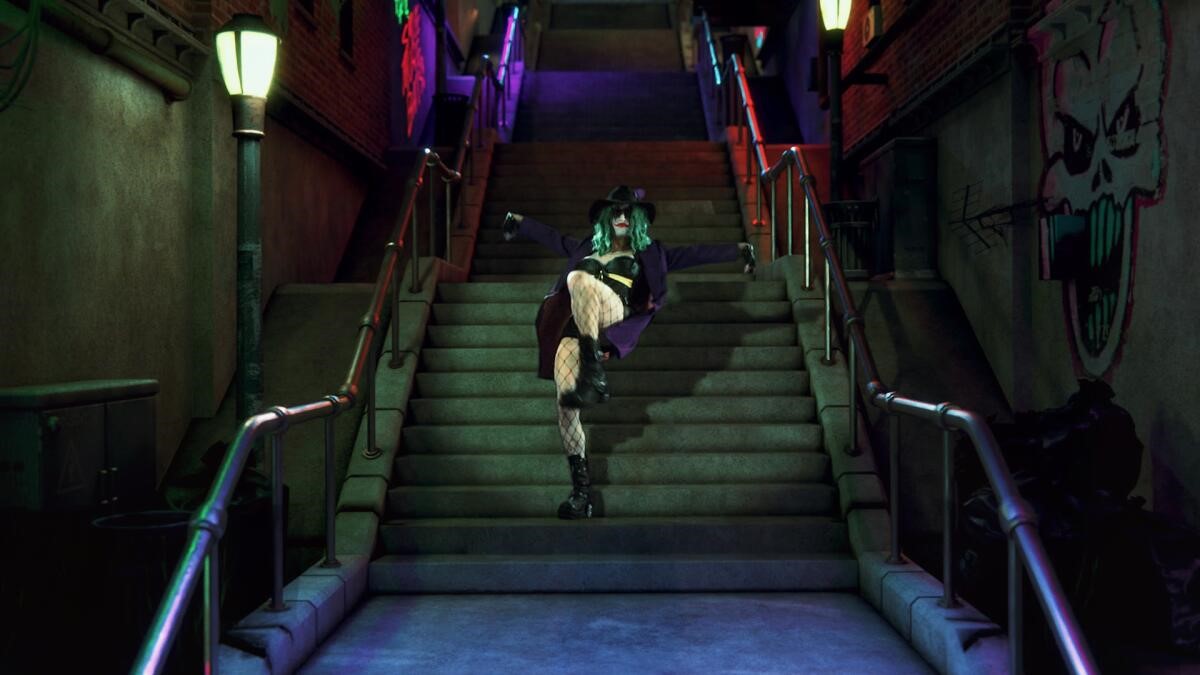
Joshua Michael Stern’s Jobs, the new biopic about the life and accomplishments of Apple founder Steve Jobs, annoyed the heck out of me for a solid twenty to thirty minutes. The film’s first act basically presents Jobs as a modern Jesus Christ, sent here to guide humanity on a greater and more fulfilling path, blessed with knowledge and foresight no mortal man could ever conceive of. He is bathed in halos of effervescent light, shot from a low angle to suggest grandeur and importance, inspires the awe of every single person he comes in contact with, confuses and then uplifts people with his ‘radical’ ideas, and even spins and dances through fields of wheat, a la Terrence Malick.
I consider myself an Apple loyalist, and respect the hell out of Jobs and his contributions to the world, but this was far, far too much. For no human being would this level of cinematic deification be appropriate. Mother Teresa herself wouldn’t get a biopic as celebratory as the first act of Jobs. I was half convinced that when the film arrived at the man’s 1985 firing from Apple, the scene would be depicted as a crucifixion, from which Jobs would later be resurrected in his 1996 return to the company, inspiring the religious fervor of hope in the hearts of consumers everywhere.
Thankfully, Jobs evens out long before it can literally or symbolically put its subject on the cross, and once Stern and writer Mark Hulme calm down and start painting a more complex, human portrait of the man, narrowing in on exactly what Jobs’ strengths and weaknesses were and how they contributed to his failures and successes, the film becomes watchable. Soon thereafter, it even excels to the point of good, and once it gets deep into the story of Apple’s mid-eighties struggles and Steve Jobs’ firing, it even becomes mildly engrossing.
And then it peters out at the end and concludes on a tremendously unfulfilling note. But I will give the film a pass on that one. Biopics are an inherently tricky proposition – a person’s life simply cannot be summarized in a two-hour movie, and crafting something that manages to be both insightful and dramatically compelling while staying true to the spirit of the subject is obviously quite difficult – and all I ask is for a film like this to present a clear interpretation of its subject and his or her significance, back that interpretation up with dramatic material that supports the arc, and do so with a decent amount of cinematic flair. Think of it as a basic rubric for creating a biopic – and one the majority of these films (like this month’s excruciating Lovelace) fail to fulfill. Jobs is a wildly imperfect movie, and never quite overcomes its zealot-like love for its subject to present a truly three-dimensional character portrait, but it absolutely hits all three marks on that rubric, and for that, I respect the film. I even daresay I enjoyed it, which is not, admittedly, what I expected on the way in.
Interpretation really is the most element in a biographical film (truth be told, it is the core to any story, real or fictional, with qualitative aspirations). So many movies like this are content to be a mere greatest hits collection of their subject’s highs and lows, and that is something I have no interest in. Cinema is not the place for dramatized historical clip shows. Cinema is about presenting ideas, and that means a biopic that explores a lengthy period of time should choose the moments it dramatizes based on how they fit into and further the specific arc of the story – and that arc, in turn, is chosen by the interpretation the filmmakers have arrived at in regards to their subject.
For Jobs, the interpretation is hardly revelatory, but it is there, and it is strongly articulated and defended. The film presents Steve Jobs as a visionary who saw the world in meaningful but unconventional ways, and who left his mark by not only displaying an aptitude for creative thinking, visual design, and a profound understanding of the end user’s needs, but by making those he worked with see and understand the significance of his ideas (and championing other people’s ideas when he recognized them as in keeping with his worldview). The flipside of those qualities were tremendous interpersonal difficulties, character flaws Jobs had to recognize and at least partially work through in order to become the best leader he could be.
It may be a fairly obvious interpretation of Jobs’ life, but it is also a clear and insightful one that connects his personality, strengths, and weaknesses to his accomplishments. If you knew nothing about Steve Jobs going in save the significance of Apple, the film would do a solid job explaining exactly why this man was able to do what he did with the company, and would illustrate how his brand of thinking is reflected in the devices we all know and love. For those who are familiar with Jobs’ life story, nothing the film explores will come as particularly astonishing, but there is a certain pleasure to be had in seeing a clear dramatic take on the man, and sometimes, that is enough for at least the foundation of a good film.
The execution of that interpretation is, of course, equally relevant. If the actual dramatic progression of the film fails to support the overriding ideas and arc, after all, the interpretation is largely worthless. Jobs hits its biggest stumbling blocks here; the beginning and ending are its weakest points, as previously noted, and the film frequently falls into the biopic trap of compressing various significant revelations, breakthroughs, or life events into single scenes or quick, flowery lines of dialogue, which always feels contrived. Expressions of Jobs’ personal philosophies too are often delivered with perfect 20/20 hindsight – I doubt the man actually had the thesis statement for Apple’s entire legacy prepared on the night he convinced Steve Wozniak to sell the Apple I – and certain supporting characters are sold pretty severely short, which serves not to make Jobs look more amazing, but only cheapens the impact of the entire story. Wozniak, I am sad to say, suffers the most; Josh Gad plays him well, but by the time the film has subjected him to 72 different fat jokes, and drastically underplayed his equally crucial role in the creation of the company, everything his character touches feels at least somewhat undercooked.

But if Jobs hits certain stumbling blocks in bringing its story to life, it still manages to make the narrative pop, and constantly, even in its most overbearing and ham-fisted moments, works to strengthen and illustrate the thematic arc. The film spends the majority of its time focusing on the years between 1976 and 1985 – the rise and fall of Apple leading to Jobs’ firing – and the material it dramatizes therein consistently serves to demonstrate the philosophical approach Jobs had to technology and the character flaws that made it difficult for him to make his dreams a reality. The film is well paced and never drags, and if anything, I could have used a few more scenes of Jobs and his employees simply having meetings and discussing computer design. The film is at its best in those moments, when it manages to both explore the core of Jobs’ leadership and present a unique sort of dialogue-driven drama. Even at its worst, I think this is an interesting period in Jobs’ and Apple’s history, and those interested in technological history will probably find it compelling. As previously mentioned, the film always goes a little too far in its love of Jobs, but when it hits the big emotional beats, and swells with sappy music or overly-dramatic cinematography, those moments do feel at least partially earned, and I for one felt invested, at least to a certain extent, in the material.
The film does not shy away from Jobs’ many character flaws – particularly in regards to his cutthroat management style – but it is not nearly as uncompromising as it needs to be, especially where his personal relationships are concerned. Part of this problem stems from a complete and total lack of development (or even presence) for all the female characters. We see the moment in which Jobs learns his girlfriend, Chrisann Brennan, is pregnant, and refuses to believe what she says because he feels it is inconvenient to him personally. That is obviously a tremendously important part of Steve Jobs’ story – he further denied his fatherhood for years to come before finally reconciling with and accepting his daughter Lisa – and while I would not say the film glosses over it, Chrisann is such a non-entity that their argument lacks dramatic weight, and the film fails to satisfactorily follow up on Jobs’ choice to shirk responsibility. A good chunk of time is devoted to the creation of the Lisa computer, and at the very least, underlining the connection between that device and the daughter he had rejected – Jobs himself told biographer Walter Isaacson that the name came from his child – would go a long way towards further exploring his emotional turmoil.
From an executional standpoint, though, I am even more perturbed by the film’s lack of a strong conclusion. Saying the film even has an ending is being generous, as Jobs is essentially content to find a workable punctuation point and leave things at that. It is too bad, because I think with a few extremely small tweaks, the point at which they choose to end could work very well. The arc of the film essentially builds to the point at which Jobs is able to master his personality flaws and synthesize them with his strengths to become the leader he always had the potential to be, at which point he rejoined Apple, turned the company around, and made all the 21st century technology contributions – iPod, iMac, iPhone, iPad, iTunes, iEtc. – for which he is most remembered. The film is the story of how Steve Jobs became the man who could do those things, and I think it is problematic that we end right on the cusp of that process without actually seeing of it. It is not that the movie needed another hour tacked on – I like the neatness of going right up to that edge, and recognizing that as the point he completed his ascendency – but I think the addition of a short 21st century montage, leading up to an excerpt of his 2005 Stanford commencement address (where he basically talked about the exact character arc the film explores), would be a perfect way to stick the landing. I understand what the current ending goes for, underlining the quality of unconventional thinking in people who change the world, but I think it plays to the movie’s worst habits of deification and over-dramatization, and left me on a somewhat sour note.
But that being said, I do really, really appreciate how Jobs, unlike almost every other biopic ever made, is confident enough in its arc to end without extra explanatory text (Person X went on to do X, X, and X, and so on). Those always bug the hell out of me – if you truly feel you need supplemental text at the end to help tell your story, then you are essentially admitting you told your story poorly, at least in the context of cinema. Jobs may have lots of bumps along the way, but it is justifiably assured enough in its own arc – and trusting enough of its audience to fill in the gaps – that it can avoid this common pitfall, and that is indicative of how I feel about the entire movie: Hardly brilliant or inspired, but understanding of dramatic basics, and executed to a refreshing level of quality.
Finally, when it comes to the aforementioned ‘cinematic flair,’ I am happy to report Jobs looks acceptably cinematic. It has to handle a lot of period details and relatively complex sets, and it does so without ever looking cheap or compromised. A solid atmosphere is created for each era and setting, and Russell Carpenter’s cinematography is actually quite nice; shot in the 2.40:1 anamorphic ratio, it makes excellent use of the space and uses color to good, subtle effect. John Debney’s musical score is overbearing but good, and I like nearly every choice of non-incidental music as well.
Most importantly, the performances are good, and in the case of Ashton Kutcher, I might even go so far as to say great. Kutcher as Jobs is a piece of casting I have spent the last year or so mocking relentlessly, and I feel bad about not giving the guy a fair shot. He is utterly committed here, and if some of his work is a bit overly mannered (particularly in the opening scene, set at the 2001 reveal of the iPod), all of it is nevertheless excellent. He has the man’s physicality down pat, but he goes far deeper than that when allowed to (some of the dialogue he is saddled with is simply unworkable), and I am extremely impressed at how he expresses age. With only minor make-up and prosthetic work, Kutcher is able to convincingly project different stages in the man’s life, and that is no easy task. Most impressive is Kutcher’s illustration of Jobs’ infamous ‘reality distortion field’ – the quality Jobs had to make the people around him believe in doing the impossible. Kutcher sells that aura 100%, and he does so with a nuance and precision that is impressive to watch.
So color me surprised, and pleasantly so, with the entire experience. Jobs falls short of its subject’s personal standard of quality, but it understands that which made the man great, and at least touches upon the flaws that held him back. It is hardly a comprehensive portrait, nor is it one that will revolutionize the way we look at the man, but in a genre that I typically find lands dead on arrival, Jobs masters the basics, and for me, that is enough. This is an interesting subject, and his story is fascinating. Tell it decently, and I will be on board. Tell it well, as this film mostly does (when it is not treating Steve Jobs as humanity’s miraculous salvation), and that is enough for me to grant a solid recommendation.
[springboard type=”video” id=”745565″ player=”wgtc007″ width=”600″ height=”350″ ]





